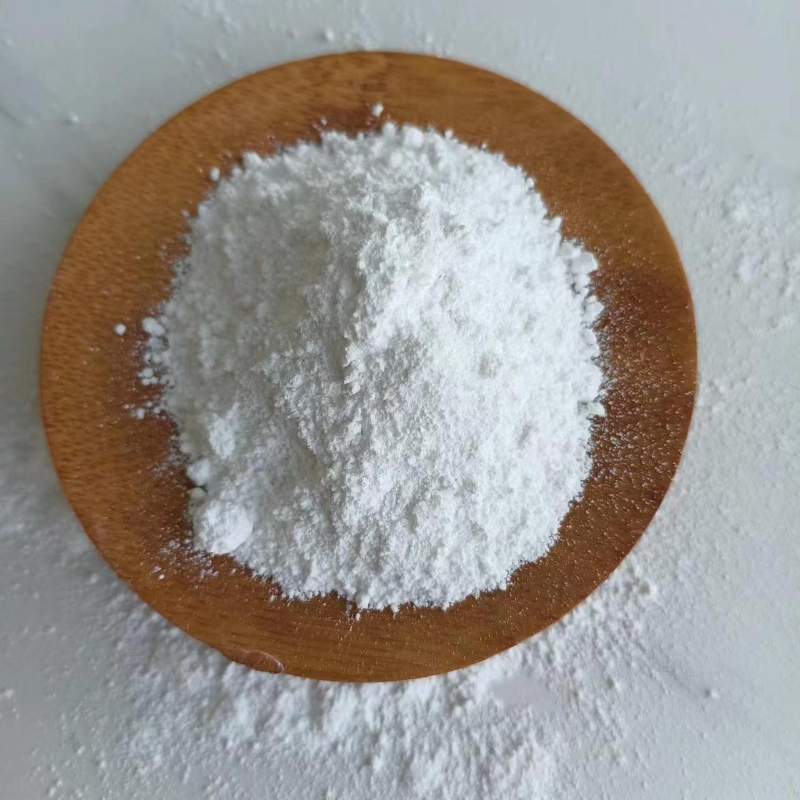-
Categories
-
Pharmaceutical Intermediates
-
Active Pharmaceutical Ingredients
-
Food Additives
- Industrial Coatings
- Agrochemicals
- Dyes and Pigments
- Surfactant
- Flavors and Fragrances
- Chemical Reagents
- Catalyst and Auxiliary
- Natural Products
- Inorganic Chemistry
-
Organic Chemistry
-
Biochemical Engineering
- Analytical Chemistry
- Cosmetic Ingredient
-
Pharmaceutical Intermediates
Promotion
ECHEMI Mall
Wholesale
Weekly Price
Exhibition
News
-
Trade Service
*For medical professionals to read and refer to this year's Chinese Society of Clinical Oncology (CSCO) guideline for the diagnosis and treatment of colorectal cancer, four major parts of the adjustment and update, one-click check! On April 23-24, 2022, the Chinese Society of Clinical Oncology (CSCO) Guidelines Conference will be held online
.
Experts and scholars from various tumor fields all over the country gathered to exchange academic research results, discuss industry development trends, and witness the update of many guidelines
.
The colorectal cancer guidelines are no exception.
At the meeting on the 23rd, Professor Yuan Ying from the Second Affiliated Hospital of Zhejiang University School of Medicine shared the updated key points of the advanced colorectal cancer section of the colorectal cancer diagnosis and treatment guidelines
.
In view of this, the "medical community" specially invited Professor Yuan Ying to conduct an in-depth interpretation of this guideline update and express his professional opinions
.
Keeping pace with the times, the update of the guideline facilitates clinical application For "chest plain or enhanced CT and abdomen/pelvic enhanced CT"
.
2.
Update point 1 of post-operative adjuvant therapy for colon cancer: For "stage II low-risk (T3N0M0, dMMR)", the description is "T3N0M0, dMMR regardless of whether it is accompanied by high-risk factors
.
" Professor Yuan Ying pointed out: "In previous guidelines, this Some patients are recommended to be "observation" after surgery.
In actual clinical work, many doctors still have doubts about the treatment of low-risk stage II patients with many clinical high-risk factors, such as vascular invasion and insufficient number of lymph node dissections.
12, etc.
, is observation and follow-up still recommended? Therefore, we added in the guidelines that patients with low-risk stage II colorectal cancer are recommended to be followed up regardless of whether they have clinical high-risk factors
.
” Update point 2: “High-risk II Stage (except T4)" was revised to "high-risk stage II", and it is recommended that all patients with high-risk stage II should consider adjuvant chemotherapy with the CAPEOX regimen for 3 months
.
Professor Yuan Ying said: "The 2022 version of the guidelines states that all patients with high-risk stage II and low-risk stage III patients can receive 3-month adjuvant chemotherapy with CAPEOX, which avoids 6-month adjuvant therapy for many patients.
3.
Update point 1 of
immunotherapy for metastatic colorectal cancer: An annotation was added for pembrolizumab in the first-line regimen of the palliative care group, indicating that the drug has obtained indications in China
.
Update point 2: In the second-line and third-line regimens of the palliative care group, “PD-L1 inhibitor” was added to the level II recommendation for patients with “MSI-H/dMMR, first-line immune checkpoint inhibitor not used”, and revised to: immune checkpoint inhibition agent (PD-1/PD-L1 inhibitor) and described in the note
.
Professor Yuan Ying pointed out: "At present, there are no less than 10 PD-1/PD-L1 inhibitors available to clinicians.
Among many immunotherapy drugs, the guidelines give priority to recommending domestically approved pembrolizumab and nivolumab.
Utuzumab, nvolimumab, and slulimumab and tislelizumab, which were approved during the revision of the guideline
.
” 4.
Postoperative follow-up update for bowel cancer: add a note “Recent studies have shown that, Dynamic ctDNA monitoring can help early warning of postoperative recurrence and metastasis, but whether it should be routinely used for postoperative follow-up and guide treatment remains controversial
.
"
Professor Yuan Ying shared: "ctDNA is one of the hotspots in the field of cancer in recent years.
After discussions among experts, it is agreed that ctDNA detection has a certain early warning effect on postoperative recurrence and metastasis of colorectal cancer patients, but ctDNA is currently used for follow-up.
And the value of guiding the selection of subsequent treatment options is still unclear, and further exploration is needed in the follow-up
.
"Forging ahead, fruquintinib is the third-line standard treatment for advanced colorectal cancer.
Talking about the third-line treatment of advanced colorectal cancer, Professor Yuan Ying shared: "Almost every year in the past, the "CSCO Colorectal Cancer Guidelines" will be updated every year.
In the third-line treatment of advanced colorectal cancer, new drug recommendations were added.
In 2018, regorafenib was added.
In 2019, fruquintinib was recommended by the guideline.
), and TAS-102 combined with bevacizumab will be added in 2021
.
Therefore, the choice of third-line treatment has been greatly enriched in recent years, and we should make individualized selection and recommendation according to the individual situation of patients for different patients
.
Fruquintinib is a small-molecule anti-angiogenesis targeted drug independently developed in China.
In the FRESCO Phase III randomized double-blind multicenter domestic study [1], patients with advanced colorectal cancer who had progressed on at least second-line chemotherapy were included.
Fruquintinib group or placebo group
.
Previous reports showed that the fruquintinib group achieved the primary endpoint of overall survival (OS), and the median OS was significantly longer than the placebo group by 2.
7 months (9.
3 vs 6.
6 months, p<0.
001)
.
Median progression-free survival (PFS) was doubled in the fruquintinib group compared with the placebo group (3.
7 vs 1.
8 months, p<0.
001)
.
Based on the research data, fruquintinib was approved in China in September 2018
.
In the current clinical application, fruquintinib has also shown good safety, so fruquintinib has become the routine recommended third-line regimen for advanced colorectal cancer in China
.
Preliminary results of a phase Ib study of fruquintinib combined with PD-1 inhibitor sintilimab in advanced colorectal cancer, led by Professor Jin Li, were presented at the 2021 American Society of Clinical Oncology (ASCO) annual meeting
.
The patients enrolled in the study had received at least second-line therapy, and the results of the study showed that the objective response rate (ORR) of fruquintinib plus sintilimab treatment group was 27.
3%, and the disease control rate (DCR) was 95.
5%.
, the curative effect is satisfactory
.
In the third-line treatment of advanced colorectal cancer, especially patients with lung metastases, if the patient has no contraindications to immunotherapy, the combination of fruquintinib and sintilimab will be considered
.
"Expert Profile Professor Yuan Ying, Director of the Medical Oncology Department of the Second Zhejiang Medical Hospital, Doctor of Oncology, Chief Physician, Doctoral Supervisor Deputy Director of the Key Laboratory of Cancer Early Warning and Intervention of the Ministry of Education, Executive Deputy Editor-in-Chief and Editorial Director of the Journal of Practical Oncology, China Anti-Japanese Member of the Standing Committee of the Cancer Clinical Chemotherapy Professional Committee of the Cancer Society Member of the Cancer Society (CSCO) Vice-chairman of the CSCO Colorectal Cancer Expert Committee Vice-chairman of the CSCO Gastric Cancer Expert Committee Member of the CSCO Pancreatic Cancer Expert Committee Chairman of the Colorectal Tumor Genetics Committee of the Chinese Medical Doctor Association Vice Chairman of the Precision Medicine Branch of the Association, Chairman of the Tumor Metastasis Professional Committee of the Zhejiang Anti-Cancer Association, Vice Chairman of the Zhejiang Anti-Cancer Association Medical Oncology Professional Committee References: [1] Jin Li, Shukui Qin, Rui-Hua Xu, et al.
Effect of Fruquintinib vs Placebo on Overall Survival in Patients With Previously Treated Metastatic Colorectal Cancer.
The FRESCO Randomized Clinical Trial.
JAMA.
2018,26 Jun;319(24):1-11.
doi:10.
1001/jama.
2018.
7855*This article only It is used to provide scientific information to medical professionals and does not represent the views of this platform







